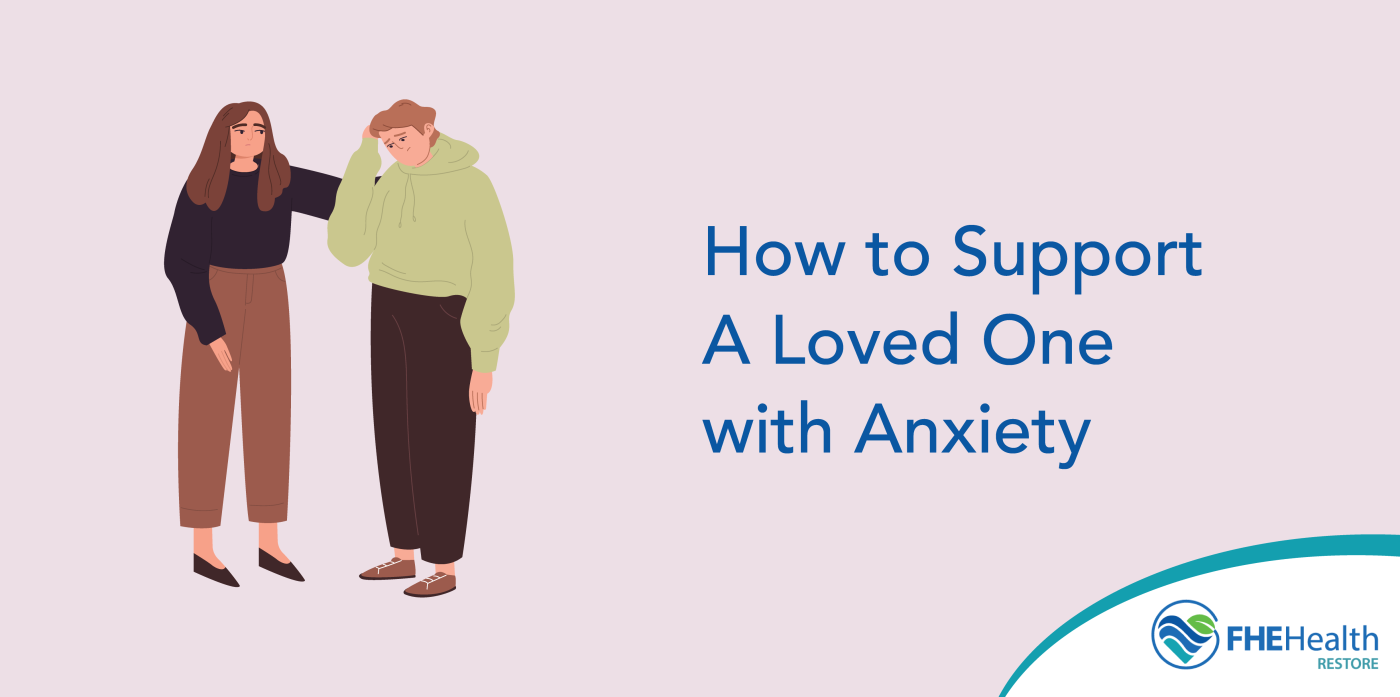Approximately 4% of the global population struggles with an anxiety disorder, but the prevalence in the United States is much higher. Here, almost 20% of adults have been diagnosed with anxiety disorders, and many more struggle with overwhelming and debilitating feelings of worry and fear. If someone you love is struggling and you’re not sure how to help, keep reading to learn about the signs of anxiety. This guide also helps you understand how to handle someone with anxiety while ensuring you take care of yourself.
Recognizing the Signs of Anxiety in a Loved One
The first step in learning how to help someone with anxiety is understanding what anxiety is and how it presents. Anxiety is different from fear because it doesn’t involve an existing threat. For example, you might be afraid if an aggressive dog approaches you. If you’re scared to leave your house because an aggressive dog might approach you — but there’s no dog currently outside — that’s anxiety.
While excessive worry, fear and preoccupation with anxiety triggers are the most common anxiety symptoms, this condition can affect various body systems, resulting in other physical and emotional symptoms. They can include:
- Restless sleep
- Dizziness, vertigo or feeling like your eyes can’t focus
- Being ill at ease and easily irritable
- Cognitive issues, such as problems with concentration, memory and decision-making
- Persistent and racing thoughts, usually related to the anxiety trigger
- Heart palpitations
- More frequent urination or bowel movements
- Trembling
- Upset stomach and nausea
- Chills or sweating
A loved one with anxiety may also pull away from relationships, isolating themselves to hide symptoms or because they’re so overwhelmed with those symptoms they don’t have the energy to deal with other people. If you notice your loved one isn’t participating in activities like they used to or seems overwhelmed or on edge, it’s possible they’re dealing with an anxiety disorder.
Effective Ways to Offer Emotional Support
Every individual is unique, which means there isn’t one correct method for supporting someone with anxiety. In general, it’s important to let the person know you’re there for them and be a steady source of emotional support.
People suffering from anxiety often feel they’re a burden or “too much” for those around them. Indicating that you love and care about someone as they are can help alleviate some symptoms and make it easier for the person to feel safe enough to explain what they need. ‘
Some potential ways to offer support include:
- Validating their feelings. You don’t have to agree that something is anxiety-inducing to recognize it’s causing your loved one distress. Saying things like “I can see this is really upsetting for you” or “It must be very difficult to deal with these thoughts” can show you empathize with them and are there to support them even if you don’t completely understand what they’re going through.
- Be consistent. Many people with anxiety disorders fear the unknown or things that feel out of control. Being consistent in your support can help them view you as a safe person they can turn to when they need help.
- Look for ways to offer practical help. Taking some of the mental load off someone with anxiety by cooking a meal or shopping for groceries can be helpful. However, what each person needs the most is different. When the person is calm and relaxed, ask them how you can best support them when they’re experiencing symptoms.
Avoiding Triggers and Unhelpful Behaviors
Someone struggling with an anxiety disorder is likely to need to confront triggers with the support and direction of a health care provider, but it’s best to avoid your loved one’s triggers when possible. Being confronted with the subject of their anxiety without the proper tools or a trained mental health care provider to support them can cause more harm and setbacks.
It’s also important to avoid getting mad at someone with anxiety. This is likely to worsen the situation and can strain your relationship significantly. If you’re having trouble dealing with your feelings about your loved one’s anxiety or responses, going to therapy yourself may help you process these emotions.
Navigating the Challenges of Supporting Someone With Anxiety
It can be very difficult to watch someone you love struggle with anxiety. Remember that you, too, may need support during this time. Couples or family therapy can be helpful, especially if the anxiety triggers center around the relationship. There are also support groups for the loved ones of those dealing with mental health challenges, including anxiety, where you can express your feelings and hear from others who’ve walked similar paths.
Supporting a loved one with anxiety requires an immense amount of patience and understanding, and it’s okay if sometimes you don’t have the emotional capacity to help. Having others you can call, such as friends, family members, clergy or a therapist, can ensure you’re not trying to take on everything yourself — and potentially negatively impacting your own mental health in the process.
How to Handle Someone With Anxiety: Encouraging Professional Help and Coping Tools
One of the most important things you can do for a loved one suffering from anxiety is to encourage them to seek professional help. Sometimes they may not know or believe recovery is possible. In other situations, people perceive a stigma or feel shame about their anxiety that can keep them from getting help. Let your loved one know they don’t have to continue living this way and it’s okay to ask for help.
If you’re not sure how to handle someone with anxiety or need help dealing with your own feelings surrounding the situation, reach out to Restore Mental Health. We offer a variety of anxiety treatments and can help you better understand your role and how to support your loved one.



